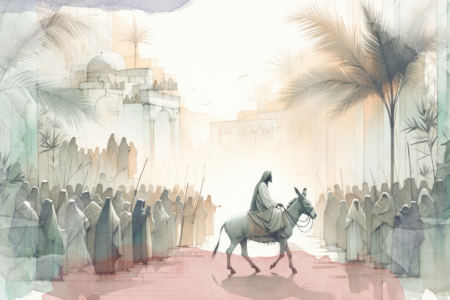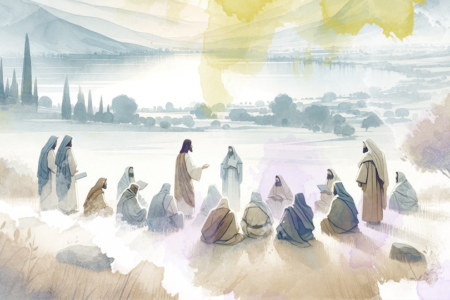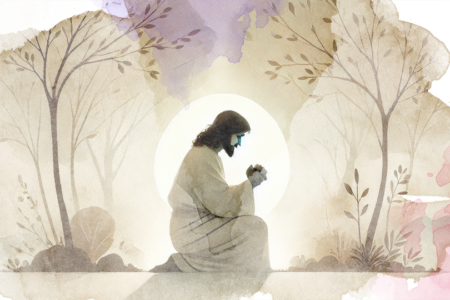The Life, Times And Message Of Isaiah The Prophet Feb/Mar 1971
ISAIAH 40-66 The Book of Consolation
THE DIVISION AND CONTENTS OF ISAIAH PART II
The twenty-seven chapters of Isaiah part II are a series of messages of comfort and promises of deliverance. This part of the book can be readily divided into three equal sections, of nine chapters each. The first two end with a stern warning to the unrepentant: There is no peace, says my God, to the wicked. (Isaiah 48:22; 57:21).
The third section also ends with an ominous warning to the wicked. (66:24)
The major theme of the first section (ch. 40-48) is the comforting prediction of the approaching deliverance from the Babylonian exile, through God’s chosen instrument, Cyrus, the king of Persia.
The omnipotence and omniscience of Jehovah is compared with the helplessness and futility of the pagan idols.
Both national Israel and a certain individual personality, are called “the servant of Jehovah.” However, Israel is described as “the deaf and blind servant” who had failed to accomplish the task which Jehovah entrusted to him. The individual servant of Jehovah is always well pleasing to Him and carries out His will. This servant is the mediator of the new covenant with Israel and brings light to the nations of the world.
In the second section (chapters 49-57) an even more glorious spiritual :redemption is envisioned. Here the central figure is “the servant of the Lord,” who by his suffering and vicarious death, described in chapter 53, the center of the second part of Isaiah, brings redemption to His people and to mankind.
In the third section, chapters 58-66, the universal message of redemption reaches a majestic climax. The repentant and regenerated remnant of Israel will finally become a blessing to the nations of the world, and Jerusalem will be the spiritual center of all nations. The vision of a new Jerusalem where there shall be “no sound of weeping, or cry of distress” blends with the vision of a new heaven and a new earth (Isaiah 65:17-19 and 66:18-23). At this point Old Testament prophecy reaches its glorious climax. It was later beautifully amplified by St. John in Revelation 21:1-4.
ISAIAH, CHAPTER 40
Jehovah, The Omnipotent Creator of the Universe Assures His People That The Hour of Their Deliverance Has Arrived
Verses 1-11 The Prologue—a proclamation of deliverance.
1 Comfort you, comfort you, My people,
Says your God.
2 Speak to the heart of Jerusalem
And proclaim to her,
That her bondage is completed,
That her guilt is paid up,
That she has received from the LORD’S hand
A double measure for all her sin.
3 A voice is calling:
Prepare a way for the LORD in the wilderness,
Make straight in the desert a highway for our God.
4 Every valley shall be lifted up,
And every mountain and hill shall be made low;
And the rugged places shall become level,
And the rough ranges a plain.
5 And the glory of the LORD shall be revealed,
And all flesh shall see it together,
For the mouth of the LORD has spoken.
6 A voice says: “Cry”
And he said: “What shall I cry?”
All flesh is grass, and its beauty as the flower of the field;
7 The grass withers, the flower fades,
Because the breath of the LORD blows upon it,
Truly the people is grass,
8 The grass withers, the flower fades,
But the word of our God endures for ever.
9 Get Thee up on a high mountain,
O Zion, herald of good tidings!
Lift up thy voice with strength,
O Jerusalem, proclaimer of good tidings!
Lift up thy voice, be not afraid;
Say to the cities of Judah:
“Behold your God!”
10 Behold, the Lord God shall come with might,
And His right arm will rule for Him.
Behold, His reward is with Him,
And his recompense before Him.
11 Like a shepherd He will feed His sheep,
And will gather up in His arms His lambs,
He will carry them in His bosom,
And lead the ewes to the water.
Comment:
1 Comfort you, comfort you, My people!
Some commentators have suggested that these words constituted a call to an unknown prophet of the exile, similar to the call of Isaiah described in chapter 6. However, the very fact that the Hebrew verb “nahamu”—”comfort You” is in plural, contradicts such an assumption. The speaker appears to be the Lord Himself, who addresses Himself through His prophet to the faithful remnant of Israel.
The twice repeated “comfort you, comfort you” is for the purpose of emphasis and is characteristic of Isaiah’s style, as we have already pointed out introduction to the second part of the book.
It is significant that in rabbinic literature, one of the Messiah’s flan., “Menahem”—the Comforter. This is reflected in the words of Jesus: “And I will pray to the Father and he shall give you another Comforter, that he abide with you forever.” (John 14:16)
“My people.”
In spite of all their iniquities and repeated rebellion, God continues to upon Israel as “my people.” Thus the very opening words of chapter 40 “Comfort you, comfort you, my people” have Messianic overtones.
Says Your God—Hebrew “Yomar eloheihem.”
The verb “yomar” is in future tense (Davidson’s Hebrew—Chaldean Dictionary), but is used as an imperfect tense, indicative of continued action. The form “Yomar”—”says,” is peculiar to Isaiah and appears both in the first second parts of the book (1:11, 1:18, 33:10, 40:1, 40:25, 66:9).
2 Speak to the heart of Jerusalem
The KJV translates this passage “speak ye comfortably to Jerusalem.” Hebrew text conveys great tenderness, expressing God’s deep compassion His people.
A double measure for all her sins
It is not God who exacts a double measure for Israel’s sins, but the punishment is the tragic result of Israel’s disobedience. However, now Israel’s appointed time of bondage, (Hebrew “tsevaah”), is about to end. From now on God again turn to His people in mercy.
3 A voice is calling
The prophet hears a voice. Usually the prophet “sees,” he has “visions.” time he “hears,” or has “an audition.”
Prepare a way for the LORD in the wilderness.
The Lord Himself, is about to lead His people through wilderness desert, from captivity to their homeland.
4 Every valley shall be lifted up and every mountain . . . shall be made low.
When God leads, every obstacle or hindrance which stands in the way of His redeemed people is swept away. It should be noticed here that the theme of a safe God-prepared highway, echoing the exodus from Egypt, is common to both parts of the book of Isaiah (Isaiah 11:16, 35:7-10, 40:3-4, 41:18-19, 42:15-16).
5 And the glory of the LORD shall be revealed.
Every mighty act of redemption manifests the glory of God.
all flesh shall see. . . .
All flesh is humanity in its physical aspect.
For the mouth of the LORD has spoken.
The prophet is perfectly sure that His prediction will come to pass, because he received the message from God Himself.
6-8 The transience of human life and the eternity of God’s Word.
6 A voice says: “Cry” . . .
For the second time the prophet hears a voice commanding him to proclaim to his people, that from the standpoint of God, man is like the grass, or the desert flower, which blooms in the morning and withers away before the day is past. Only the Word of God abides forever. In this eternal, unchanging and promise-keeping God, Israel can put absolute trust.
9-11 The prophet bids the faithful remnant of Israel, personified by the feminine figure of Zion and Jerusalem as the heralds of “good tidings,” to declare to the cities of Judah the appearance of their God in power and majesty.
God is visualized in the dual character of a “Strong Man of War” and of a “Gentle Shepherd,” who carries His little lambs in His bosom, and tenderly leads the mother ewes with their young to the streams of water. He is the God of history and also the God of gentle compassion and mercy. One is forcefully reminded of the beautiful Shepherd Psalm (23) and of the Good Shepherd described in the Gospel of St. John 10:llff.
12-20 The Great Creator and Sustainer of the universe is contrasted with the nothingness of nations and their idols.
12 Who has measured the waters in the hollow of His hands?
Or set the limits of heaven with a span?
Or who has gathered up the dust of the earth in a bushel,
And weighed the mountains on a balance,
And the hills on scales?
13 Who directed the Spirit of the LORD,
Or who was His counsellor to instruct Him?
14 With whom did He consult to gain understanding
And who has taught Him knowledge,
Or instructed Him in the way of discernment?
15 Behold, the nations are as a drop of a bucket,
And no more than a speck of dust on the scales,
The islands are no more than fine dust
16 Lebanon is not enough for fuel,
And its beasts are insufficient for a burnt offering.
17 All the nations are as nothing before Him,
He considers them as null and non-existent.
18 To whom then will you liken God
Or what form will you attribute to God?
19 Is it to the image which the craftsman makes,
And which the goldsmith covers with gold,
And the silversmith has fitted out with silver studs,
(Or is it with) A block of sturdy wood, which a man chooses
And finds a skillful craftsman to make an image,
Which will not topple over,
Comment:
12 Who has measured the waters in the hollow of His hands?
In a series of questions the prophet impresses upon his people the infinite magnitude and omnipotence of Jehovah, the Maker and Sustainer of heaven and earth.
13-14 God, and He alone, is the architect of the universe, He alone is the source and fountain of all wisdom and knowledge.
15-17 Behold the nations are as a drop of a bucket. . . .
Israel, so crushed and subjugated by powerful enemies, may feel that pagan idols are more powerful than Jehovah. Because of this the prophet seeks to impress upon His people the omnipotence and infinite grandeur of their God. In His sight all those seemingly unconquerable nations are of nothing, a mere speck of dust on the scales.
18 To whom then will you liken God?
Obviously there can be no comparison.
19-20 Is it to the image which the craftsman has cast. . . .
With supreme contempt the prophet describes the pitiful, man-made idols cast by a craftsman and adorned by the art of the goldsmith and silversmith, or the wooden artifacts of the skilled carpenter.
21-26 The Omnipotence and glory of Jehovah are further demonstrated from nature and history.
21 Do you not know, have you not heard.
Has it not been told to you from the beginning,
Have you not perceived this from the foundations of the earth,
22 That it is He who sits above the circle of the earth,
Whose inhabitants are like grasshoppers?
23 He stretches out the heavens like a curtain,
And spreads them out like a tent to dwell in it.
24 Who reduces the mighty to nothing,
And the judges of the earth to extinction,
Scarcely are they planted, scarcely sown,
Scarcely has their stock taken root in the ground
Then He blows upon them, and they wither away,
And the whirlwind carries them off like chaff.
25 To whom then will you compare Me that I might be equal?
26 Lift up your eyes above and look at the stars, who created these?
He leads them out one by one,
And calls them by their name,
Because of His great might and exceeding power
Not one of them fails (in their appointed orbits)
Comment:
21-26 In words of superb beauty the prophet reinforces his argument that the whole universe, heaven and earth and the history of mighty men and nations bear testimony to the infinite power, wisdom and grandeur of God. In His sight great and mighty men are like grass which scarcely takes root in the soil, soon withers away and is carried off by the wind. God also rules by His Power and wisdom the heavens and controls the stars and planets in their courses (v. 26)
27-31 Surely Israel can trust a God who is like Jehovah.
27 Why then do you say, O Jacob, and speak, O Israel
“My plight is hidden from the LORD,
And my right is ignored by my God?
28 Do you not know, have you not heard,
That the eternal God, the Lord,
The Creator of the ends of the earth,
He does not tire, nor grows weary?
His discernment is past searching out.
29 He gives power to the weary,
And to him that has no might, He adds strength.
30 Though youth may faint and become weary,
And choice young men may stumble and fall,
31 Yet they who wait upon the LORD
Shall renew their strength,
They shall mount up on wings like eagles,
They shall run and not become weary,
They shall walk and never tire.
Comment:
27 Seeing that the Lord is so omnipotent, so wise and yet so gracious, how can Jacob – Israel say, or even think, that God does not care about their plight, or about the vindication of their right?
28 Do you not know, have you not heard. . . .
From their own experience and long history, Israel ought to know that their God is never weary and never defeated. Only man cannot always understand His ways.
29 Not only is Jehovah never weary Himself, but He gives strength to those who are completely exhausted and without strength.
30-31 Even the finest young men become tired and exhausted, but they who wait upon the LORD shall renew their strength and soar up to great heights just like the eagles. They shall run and not become weary. They shall walk and never become tired.
Here is one of the most beautiful promises given to those who put their trust in God. They shall forever renew their strength. They shall always rise above seeming defeat and soar up to lofty heights. God Himself will enable them to run their course, even where much younger and stronger men stumble and fall. Their secret is that “they wait upon the Lord.” Jehovah Himself is the inexhaustible fountain of their strength.







